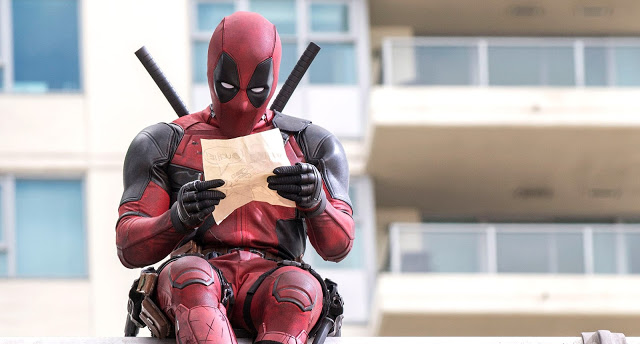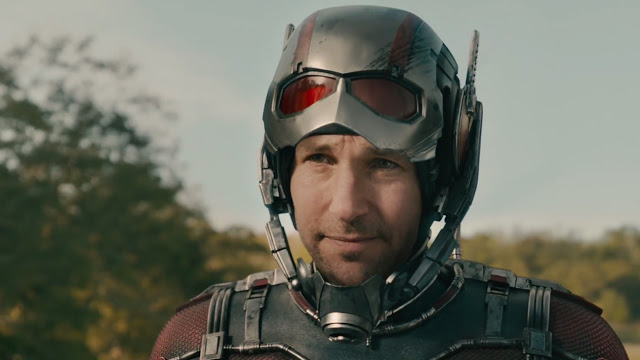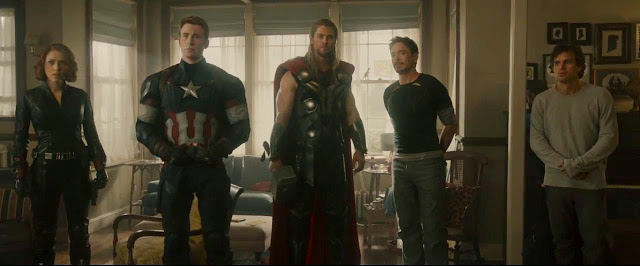Deadpool: A Wisecracking Superhero Takes Aim at Bad Guys, and a Genre
There’s truth in advertising, and then there are the opening credits to Deadpool. Soundtracked to Juice Newton’s ’80s ballad “Angel of the Morning”, the camera pans and pulls slowly through a frozen still of interrupted carnage, and amid the suspended bullets and geysers of spurting blood, there peeks out a People Magazine cover. In that 2010 issue, People named Ryan Reynolds the sexiest man alive, so this would seem to be an opportune time for the title sequence to announce Reynolds’s presence in this madcap meta movie. Instead, the credits read, “Starring: God’s Perfect Idiot,” followed by other trivializing labels that summarize the remaining cast members: “a hot chick,” “a British villain,” “the comic relief,” “a CGI character.” The sequence concludes by informing us that Deadpool was produced by “asshats”, written by “the real heroes here”, and directed by “an overpaid tool”.
Is this anarchically funny or pitifully defensive? Who says it can’t be both? An ultraviolent superhero origin story filtered through the self-aware parody of send-ups like 21 Jump Street, Deadpool seeks to eviscerate the formula that pervades the Marvel Cinematic Universe while simultaneously hewing to that very template. (For the record, Deadpool is a Marvel production but is not formally associated with the MCU.) This means that it comes wrapped in a shield of protective irony that makes it virtually impervious to criticism. That is, how do you judge a pointless comic-book movie that so clearly knows it’s a pointless comic-book movie? Many MCU pictures are like schoolyard bullies, browbeating their mass audiences into submission through brute force. Deadpool is more like the class clown; accuse it of being stupid, and it’s likely to retort, “I know you are, but what am I?” Read More



